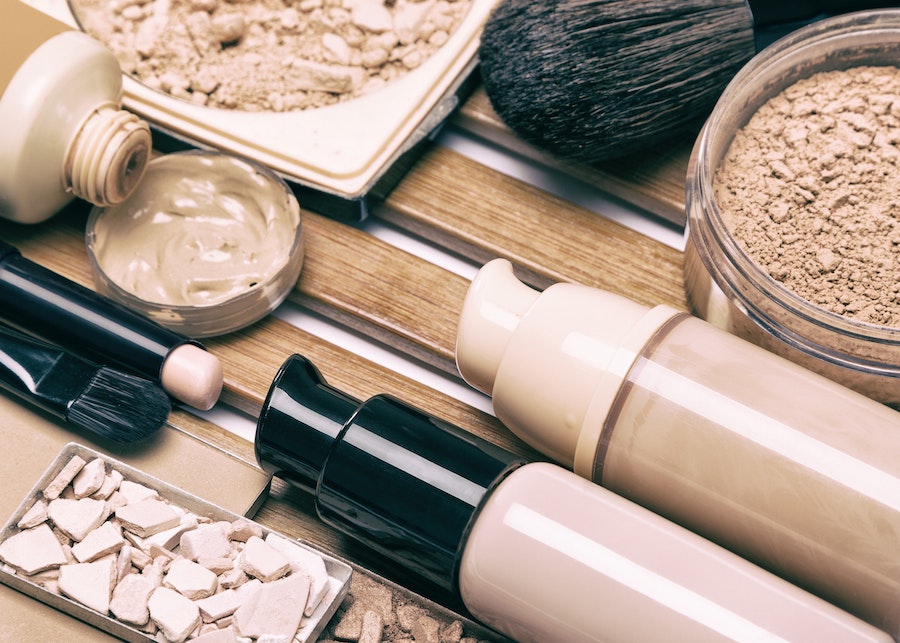Should you really be worried about the parabens in your foundation?
Ever idly flipped over your foundation bottle while you’re blending in your make-up in the morning and wondered, ‘What the heck are all of these unpronounceable ingredients?’
Butylparaben, ethylparaben, isobutylparaben… they don’t exactly roll of the tongue, do they?
There’s currently lots of discussion surrounding these skincare ingredients, namely, how good they are for our health. In a world where we’re increasingly aware of what we eat (just take a look at the rising number of gluten and dairy-free options available), it’s no surprise we’re gradually starting to question what we put onto our bodies, and there’s one word that’s getting a pretty bad rep in beauty circles: parabens.

Parabens are in over 75% of skin care products available to buy in the UK
You’ll likely have seen ‘paraben-free’ labels popping up on toiletries and cosmetics on the high street, but if you have no idea what they actually are, it can be difficult to know whether these so-called ‘skin nasties’ are worth swerving.
Here’s what you need to know…
What exactly are parabens?
Parabens are a type of synthetic preservative that have been used since the 1950s to increase the shelf life of products. These widely used ingredients stop mould, fungus and bacteria growing in your cosmetics (yep, there’s a reason why your make-up doesn’t “go off”), particularly in warm, moist environments like your bathroom.
Parabens are included in more than 75% of skincare products available to buy in the UK, but they’re also used in glues, oils, soft drinks, sauces, processed meat and hundreds of other everyday products. If you’re wondering why you’ve never noticed them before, it’s because cosmetics usually won’t shout “contains parabens” on the front of their packaging – instead you’ll need to comb the ingredients list. The most common names to look out for are butylparaben, methylparaben and propylparaben.
Why are people worried about them?
While it’s great that parabens can banish potentially harmful bacteria from our cosmetics, there’s long been debate over whether these chemicals can contribute to the development of serious health issues.

Parabens: should we be worried?
Studies have suggested that “long-chain” parabens could interfere with the body’s hormones, particularly reproductive hormones, causing developmental disorders, fertility problems and cancer. In 2004, a small British study from the University of Reading found traces of five parabens in the breast tissue of 19 out of 20 women studied. While the study didn’t prove that parabens can cause cancer, it did confirm parabens were able to enter the skin and remain within tissue.
That being said, all cosmetic products and their ingredients are governed by strict European laws, and the EU has signed off on the safety of all of the parabens currently in your products. But while strict laws have limited to a safe amount in each product (usually less than 1%), health campaigners have warned that cumulative exposure could overload our bodies with chemicals.

How often do you look at the ingredients in your cosmetics?
So should we really be avoiding them?
Not exactly. The bottom line is there’s a chance they’re harmful, but there’s no conclusive scientific evidence or government advice to suggest you need to start chucking out your make-up stash. Still, if you’d rather err on the side of caution, you could always make an effort to ‘clean up’ your beauty products this summer. More brands than ever are jumping on the organic bandwagon, and it’s never been easier to go paraben-free.
To get the ball rolling, we’ve rounded up seven of our favourite natural foundations that are free from harsh preservatives.
1. The Ordinary Serum Foundation, £5.70, CultBeauty

2. Bare Minerals Barepro Liquid Foundation, £29, LookFantastic

3. Benecos Natural Creamy Makeup, £8.95, Holland & Barrett

4. Kjaer Weis Cream Foundation, £51, CultBeauty

5. Urban Decay Naked Weightless Ultra Definition Liquid Make-up Skin Foundation, £28.50

6. RMS ‘Un’ Cover-up Concealer, £34, CultBeauty

7. Inika Organic Certified Organic Liquid Foundation with Hyaluronic Acid, £33

The Press Association
Latest posts by The Press Association (see all)
- Maple Cinnamon Granola - January 8, 2025
- 8 things your feet can tell you about your health - January 8, 2025
- 9 ways to look after your emotional health better in 2025 - January 7, 2025
- EastEnders fans to vote on storyline for the first time in 40th anniversary week - January 7, 2025
- Aldi beats rival Lidl as cheapest supermarket of 2024 - January 6, 2025





















